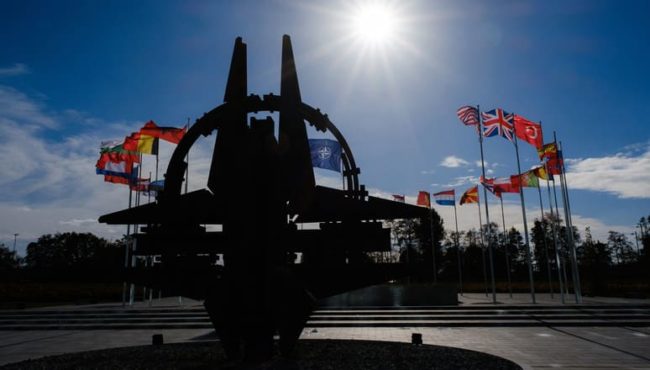NATO Defence Ministers take decisions to strengthen our security

NATO Defence Ministers agreed to further strengthen Allied security during their virtual meetings over the last two days (22-23 October 2020). On Friday, Allied Ministers discussed NATO’s training missions in Afghanistan and Iraq, which are helping build long-term security and stability.
Allies reaffirmed their support for the Afghan peace process and speaking after the meeting Secretary General Jens Stoltenberg said: «The Taliban must reduce the unacceptable levels of violence. To pave the way to a ceasefire they must break all ties with Al Qaeda and other terrorist groups, so that Afghanistan never again serves as a platform for terrorist attacks on our countries.» Defence Ministers also agreed to expand NATO’s mission in Iraq in order to help Iraqi forces to fight terrorism and prevent the return of ISIS.
Ministers also discussed the situation in the eastern Mediterranean and the establishment of a military de-confliction mechanism between Greece and Turkey. The Secretary General highlighted that the de-confliction mechanism would not solve the underlying disputes but it could provide the space for political discussions. Mr. Stoltenberg said: «It is extremely important to understand that this – the responsibility of preventing incidents and accidents at sea – cannot solely be put on the shoulders of the captains and the crew and the soldiers and the pilots who are operating in the eastern Mediterranean.»
On Thursday, Defence Ministers agreed to create a NATO Space Centre at Allied Air Command in Ramstein, Germany. This will be a focal point for space support to NATO operations, sharing information, and coordination. Ministers also addressed NATO’s strengthened deterrence and defence posture, including the response to Russia’s missile capabilities. At the same time, NATO Allies remain fully committed to arms control and disarmament.
Ministers also discussed the importance of national resilience and a report on the state of critical infrastructure, including ports and airports, supplies of fuel, food and medical equipment, and telecommunications, including 5G. Ministers agreed to strengthen the Allied resilience pledge when NATO leaders meet next year.
Allies also agreed on the importance of fairer burden-sharing in the Alliance. The Secretary General highlighted that 2020 will be the sixth consecutive year of increased defence spending by European Allies and Canada, with an increase this year of 4.3 percent in real terms.
















